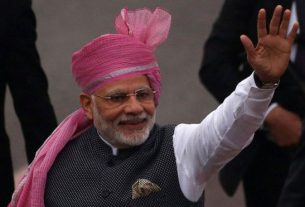Disruption in the use of social media has an economic impact and can fuel disinformation, experts said, commenting on the ban on the open use of X in Pakistan.
Access to the social media giant has been blocked since Feb 17 as allegations of rigging during the Feb 8 general elections continue to make news.
UK-based Alp Toker, the director of NetBlocks, said X disruption in Pakistan could have millions of dollars in economic impact in the region.
“The disruption to X in Pakistan could have an economic impact in the region of $50m, based on our COST outage disruption impact estimator. This takes into account lost productivity and lost business and investment opportunities,” Toker said in a statement sent to Anadolu.
Ban was imposed after an elections officer in Rawalpindi, Liaqat Ali Chattha, publicly claimed to have allegedly changed election results in his area. It soon went viral on social media.
The government, as well as the Election Commission of Pakistan (ECP), have rejected any wrongdoing in elections. The services are yet to be restored.
“Metrics show that X/Twitter remains restricted in Pakistan into a tenth day, as the nation joins an exclusive set of countries that have imposed extended or permanent bans on international social media platforms,” said Internet monitor NetBlocks on February 26.
Disruption, blockade of internet, social media platforms in Pakistan
According to Digital Rights activists, millions of internet users in the country have experienced service interruptions five times during the last two months, including on election day, i.e., February 8.
“PTA [Pakistan Telecommunication Authority] usually issue some kind of a statement whenever they block social media platforms however this time, PTA has not said anything officially about why Twitter or X is offline and when it will be restored,” Sadaf Khan, digital rights campaigner, told Anadolu.
“This all adds to an environment of uncertainty where, obviously, people are unable to trust the government. They’re unable to trust the state,” she added.
Both the PTA authorities and IT ministry declined to comment, while the interior ministry did not respond to a request for comment.
Economic losses
This is not the first time Pakistani authorities have suspended internet or social media platform services.
Last year, people experienced disruption of internet and broadband services four times, which caused heavy losses to the country.
Last May, when the authorities suspended internet and social media services in the country after the arrest of former prime minister Imran Khan, which caused violent protests, it caused a $30 to $35 million loss to the IT sector in just one week, according to the Pakistan Software House Association.
According to PTA data, there are 190 million mobile cellular subscribers and 129 million mobile broadband subscribers, which is around 230 million people in Pakistan.
According to the Pakistan Telecommunication Authority, the percentage of broadband internet users in Pakistan is 49.08% – 108 million subscribers.
The overall internet penetration in Pakistan is around 52%, which saw the IT sector increase its exports by 47% during the 2020-21 fiscal year.
Given the surge in e-commerce, Amazon has also added Pakistan to its sellers list, enabling it to sell on the e-commerce platform.
However, experts have warned that the suspension of internet and social media platforms causes economic losses to the country when many people use them for online businesses.
“Although X isn’t the most popular social media platform in Pakistan, it is a significant force, particularly in the media and information technology sectors. It’s also the primary means to reach an international audience,” NetBlocks founder Alp Toker said.
Toker also warned that these restrictions and telecom blackouts on election day would be a “red flag” for most investors.
Restrictions on access to information
The restrictions on social media platforms affect their users and owners of small or big online businesses and cause huge difficulties for journalists to get timely information.
“Social media platforms are a big source of information for not only its users but also for journalists as most institutions, government ministers, officials, politicians and others posting their statements, etc. on social media platforms,” said Islamabad-based journalist Zahid Shah.
“If the government blocks our access to these platforms, then how can we access authentic information,” he added.
A senior official in the IT ministry also endorsed Shah’s complaint and said they “never want to shut down the internet or social media platforms in the country.”
“No country wants to shut internet or social media platforms as it causes damage to the country’s reputation and also causes economic losses, but sometimes governments do it because of security situations,” the official told Anadolu on condition of anonymity as he was not authorised to speak with media.
Digital Rights activists believe that the vacuum and gap created by such actions “can easily filled by disinformation.”
“So, on the one hand, we have an erosion of the information ecosystem and on the other hand, and we have a rise in the mistrust for the government; both of this combined obviously creates a lot of instability and uncertainty which can’t be good for any society or any democratic system,” said Sadaf Khan.__Tribune.com





